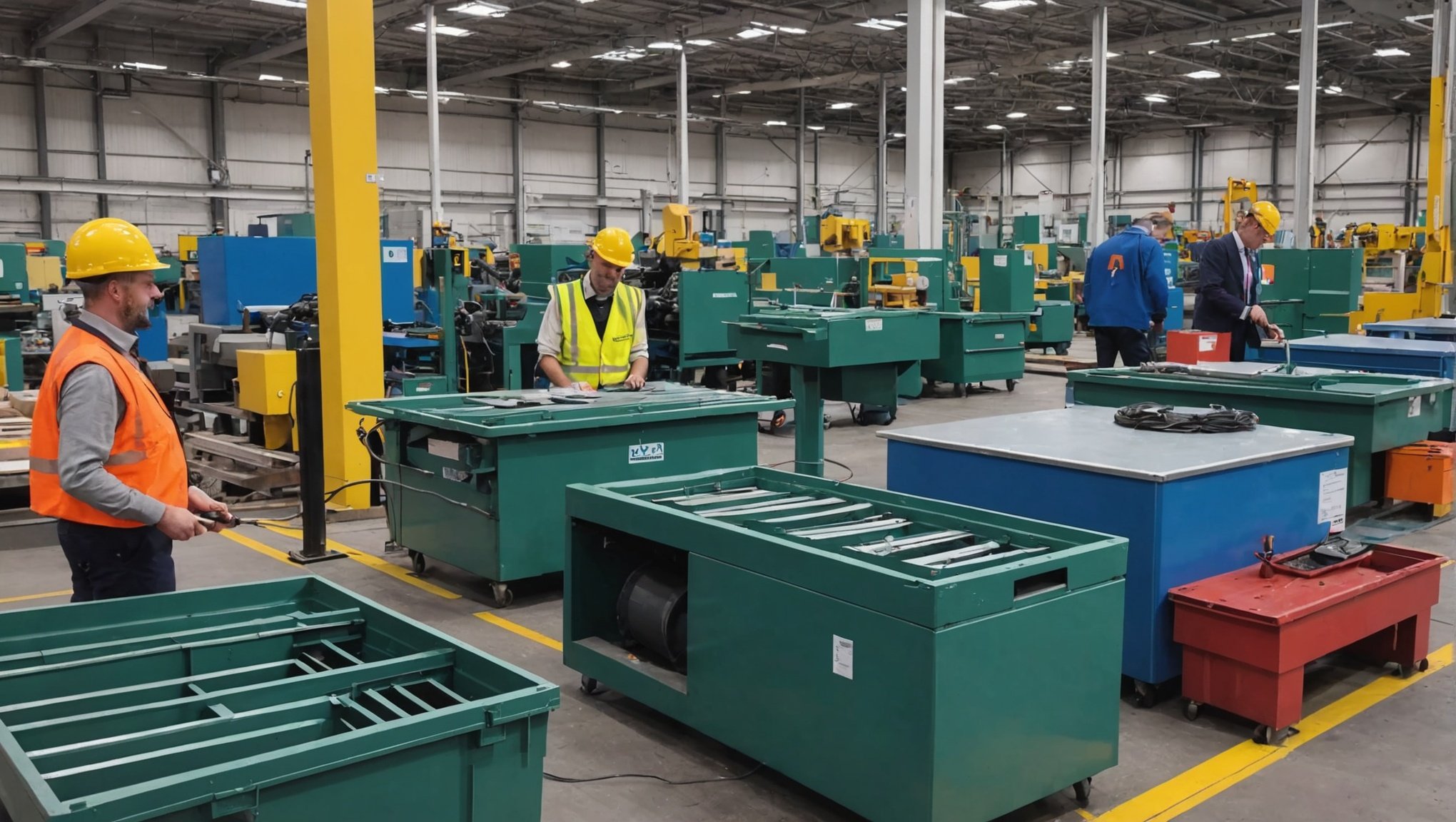Overview of Eco-Friendly Innovations in Manufacturing
Over the past few years, eco-friendly manufacturing has gained momentum due to growing awareness and demand for sustainability. The manufacturing industry is increasingly adopting sustainability strategies that focus on reducing environmental impact and improving resource efficiency. Innovations such as renewable energy integration, waste minimisation, and the use of sustainable materials have become essential components of the modern manufacturing process.
Several recent trends illustrate this shift towards sustainability. Companies are investing in green technologies to decrease their carbon footprint, optimise energy use, and minimise waste. For instance, advancements in energy-efficient machinery and automation are helping manufacturers enhance operational efficiency while reducing emissions.
Furthermore, eco-friendly practices within manufacturing do not only pertain to production processes but also extend to brand reputation. By implementing sustainability strategies, companies can enhance their market position and appeal to environmentally conscious consumers. Innovations that promote transparency about sourcing and production methods are particularly influential in building trust and loyalty.
An example of this is seen in Sheffield, where forward-thinking firms are leading the charge. These companies have adopted cutting-edge sustainability strategies, setting a benchmark for others to follow. Their commitment to eco-friendly manufacturing not only results in operational benefits but also elevates their brand reputation significantly.
In the same genre : Enhancing Client Connections: Top Strategies for Bristol Accounting Firms to Strengthen Relationships
Effective Strategies for Minimizing Waste
In today’s fast-paced world, utilizing efficient waste reduction strategies is more crucial than ever. One potent methodology is Lean Manufacturing, which focuses on eliminating waste while maintaining productivity. Lean principles emphasize streamlining operations to produce only what is necessary, reducing material excess and unnecessary processes.
A successful approach to integrating waste reduction involves recycling and reusing materials. Within manufacturing processes, companies can implement innovative strategies such as:
- Designing products for disassembly, enabling easier recovery of materials
- Incorporating recycled materials back into production lines
- Partnering with other industries for resource exchanges
Such initiatives not only minimize waste but also enhance efficiency and cost-effectiveness.
The circular economy further supports these efforts, promoting a shift from the traditional linear model of ‘take, make, dispose’ to a restorative, regenerative system. In Sheffield, industries are increasingly embracing this model. By fostering collaboration across various sectors, they aim to keep materials in use for as long as possible, extracting maximum value and reducing environmental impact.
Overall, waste reduction strategies like lean manufacturing and circular economy practices hold vast potential to improve sustainability and drive innovation within industries.
Case Studies of Sheffield Manufacturing Firms
Delving into Sheffield’s case studies offers insights into how local firms are pioneering their sectors. By embracing local innovations, these companies showcase best practices that drive success and sustainability.
Success Stories
Several Sheffield manufacturing firms have become success stories by adopting innovative practices. For example, a renowned steel manufacturer invested in cutting-edge technology to significantly reduce its carbon footprint, aligning with global environmental goals. Another company innovated with locally sourced materials, enhancing its sustainability and reducing dependency on international supply chains.
Lessons Learned
The journey of these firms hasn’t been without challenges. From technological adaptations to workforce training, navigating these hurdles has provided valuable lessons. Companies found that whilst embracing local innovations, a focus on continuous learning and employee involvement was paramount to maintaining momentum.
Industry Comparison
Comparing Sheffield firms to industry norms reveals a proactive stance towards innovation. While some regions lag in sustainability commitments, Sheffield companies often set benchmarks. When matched against broader industry trends, their strategies highlight the efficacy of integrating local innovations to promote sustainability. Focusing on these best practices allows Sheffield to remain competitive while addressing modern environmental and operational challenges.
Navigating Industry Regulations and Standards
In the manufacturing landscape, understanding and adhering to Manufacturing Regulations is crucial. For companies in Sheffield, environmental regulations significantly impact operations, requiring careful strategies to maintain compliance. At the heart of these regulations are directives aimed at reducing pollution, conserving resources, and ensuring sustainable practices throughout the manufacturing process.
Key environmental laws impacting manufacturers include the Environmental Protection Act and the Climate Change Act. These set forth guidelines that companies must follow to minimise their environmental footprint. It’s essential for businesses to integrate Compliance strategies to meet such standards effectively. Best practices, such as regular audits and adopting cleaner technologies, can position manufacturers favorably in adhering to these standards.
Staying abreast of evolving regulations is another vital aspect. Industry bodies frequently update their Environmental Standards to reflect advancements in technology and shifting policy landscapes. To navigate these changes efficiently, manufacturers should utilise resources like industry associations or government portals that offer the latest updates and sustainability initiatives.
By proactively embracing these standards, Sheffield manufacturers can not only ensure compliance but can also pave the way for innovation and efficiency, aligning their operations with global sustainability goals.
Resources and Tools for Implementing Sustainability Initiatives
Turning sustainability goals into reality requires the right resources and tools. Fortunately, there are a variety of software solutions available that are specifically designed to track and measure sustainability metrics, offering businesses in Sheffield the means to implement eco-friendly practices effectively.
Key players in this arena include platforms like Sustainalytics and EnviroLogix, which specialise in providing comprehensive data analytics and reporting tools. These tools assist in tracking energy consumption, waste management, and carbon footprint, thereby helping industries make informed sustainability decisions.
Additionally, numerous organizations and networks offer guidance and support for eco-friendly manufacturing. The Sustainable Development Alliance and the Green Business Network create platforms for collaboration and knowledge sharing, facilitating a transition towards sustainable practices.
In terms of financial backing, businesses can find funding options and grants that support sustainable initiatives. Sheffield-based entities can leverage opportunities like the Sheffield City Region Green Fund, which provides financial assistance for projects that promise significant environmental benefits.
The synergy of implementation tools, industry support, and funding options creates a solid foundation for industries in Sheffield aiming to prioritise sustainability, ensuring these initiatives are not just theoretical ambitions but actionable realities.
Expert Opinions and Future Trends in Eco-Friendly Manufacturing
As we stride forward into a more sustainable era, expert insights reveal a promising shift towards eco-friendly manufacturing practices. Industry leaders anticipate a surge in future trends focused on minimizing environmental impact while maximizing resource efficiency. One notable trend involves the integration of sustainability innovation within manufacturing processes. Experts emphasize that advancements in technology such as artificial intelligence and the Internet of Things (IoT) are pivotal in achieving these goals.
Artificial intelligence can optimize resource allocation, reducing waste and energy consumption. Meanwhile, IoT systems allow real-time monitoring and management of manufacturing operations, leading to significant enhancements in sustainability innovation. These technologies do not just improve current processes; they open up avenues for developing new, environmentally conscious products.
Innovation plays a crucial role in long-term sustainability goals by driving the creation of new materials and methods that prioritize ecological preservation. Experts stress the importance of continued research and development in this area.
This transformation in eco-friendly manufacturing not only responds to consumer demand for greener products but also addresses broader societal and environmental challenges. As technology advances, keeping a keen eye on future trends ensures that businesses remain at the forefront of sustainability.











